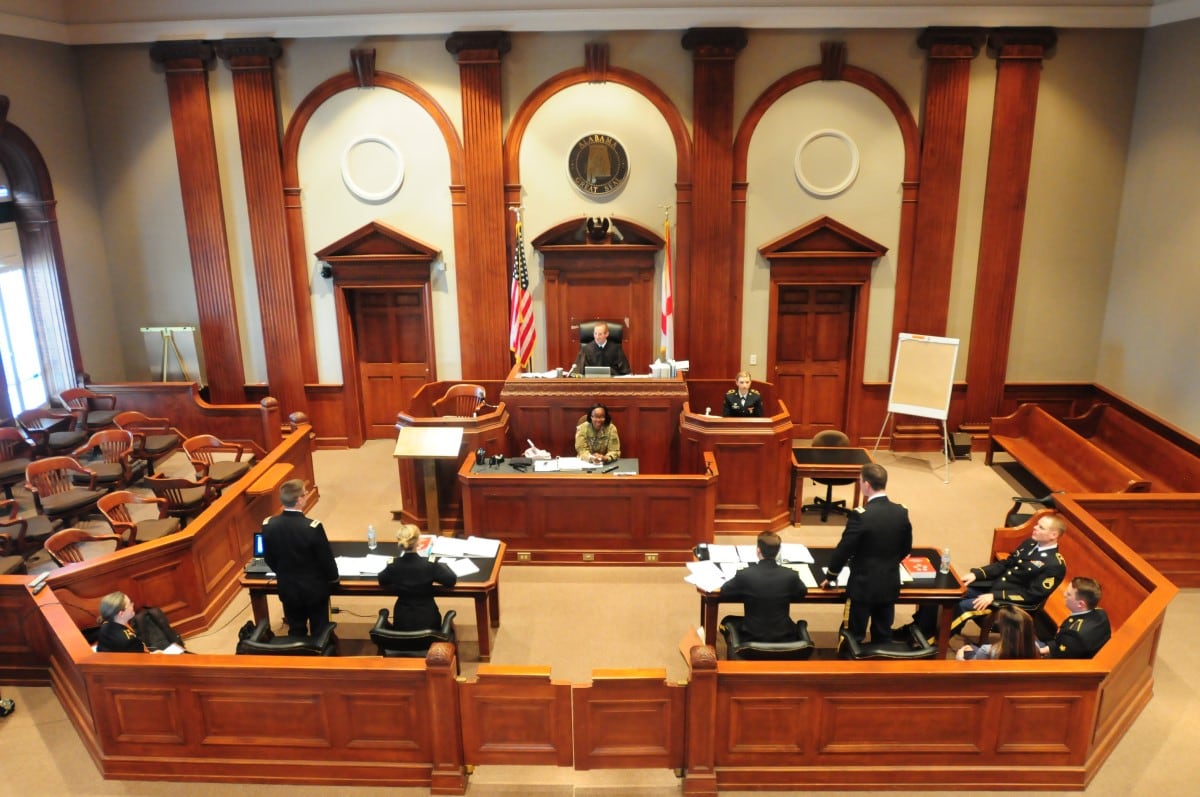Now that a Pentagon review commission has made the controversial recommendation to strip commanders of their authority to oversee sexual assault and harassments cases, Defense Secretary Lloyd Austin wants to get feedback from top military leaders before making any final decisions about formal changes.
Austin has given the services until the end of May to evaluate the proposals from the Pentagon’s sexual assault and harassment independent review commission, which included removing sexual assault prosecutions from the chain of command and allowing an independent prosecutors office to handle them instead, Pentagon spokesman John Kirby said Friday.
Kirby declined to comment on the specifics of the recommendations or Austin’s initial impressions of them.
“I think by dint of the fact that he has asked the secretaries of the services ― and the chiefs, and the chairman, and he’ll ask his policy experts ― to take some time to go look at these recommendations and give him feedback, that you can assume that one outcome of the meeting [between Austin and the review commission] was that he wants to keep an open mind about these,” Kirby said.
Austin, a retired four-star general, created the review commission in February shortly after taking over the Pentagon’s top job. The commission came back from its initial survey of Pentagon policies with a key recommendation that has been pushed by sexual assault prevention advocates for at least the last decade: take decisions to charge and try these cases out of commanders’ hands. There may be more recommendations to come, Kirby added, and some of those could require legislation from Congress.
The proposed change comes after years of criticism that military commanders have failed to aggressively prosecute allegations of sexual assault under the traditional military justice system.
Under a new framework proposed by the commission, a central sexual assault prosecution office would assign professional special victims attorneys to these investigations, letting them decide whether to prosecute alleged offenders.
Under the current model, criminal investigators make recommendations about substantiated claims, and a commander may or may not opt to move forward with charges. Senior military leaders have argued that authority is necessary in order for commanders to be truly in command of the good order and discipline of their units.
Similarly, if a case goes to Article 32 ― the military’s equivalent of a grand jury ― an independent hearing officer presides and makes recommendations about whether to proceed to trial, but the final decision is again up to the commander.
RELATED

If Austin concurs with the recommendation for change, the Defense Department would be taking the reins of an controversial issue that has been working its way through Congress since 2013, where it seemed the best chance of enacting a new policy would be through imposed legislation.
The commission additionally recommended that an independent decision-maker be called in for cases sexual harassment and some hate crimes.
Sexual assault prevention advocates have long argued that commanders have shown they are not up to the challenge of following through with sexual assault reports, as the incidents may shine an unfavorable light on a command and therefore, that officer’s abilities as a leader.
At the same time, others have argued that the pressure to push every report to its fullest limit has motivated some commanders to put flimsy cases before a court-martial panel, resulting in a high number of acquittals.
Acknowledging the difficulty of securing a conviction in cases where there may be no physical evidence or witnesses, the commission also recommended automatic involuntary separations for accused service members if the claims against them are substantiated by an investigation.
The Coast Guard has had a similar policy regarding sexual assault, but rather than process discharges, they bar members with substantiated assault or harassment claims against them from reenlisting, regardless of whether a case goes to trial.
The moves would mark a major change for service members, particularly survivors of sexual assault and harassment, who often either tell horror stories of the indifference or retaliation they faced after reporting misconduct or say that they were reluctant to lodge a report for fear that their command will cast them aside.
That’s especially true for those who have been harassed or assaulted by a member of their chain of command, or by someone they know their commanders look upon favorably.
RELATED

As the services have been implementing programs for sexual assault prevention and response, their numbers have been getting worse. An increase in reporting is often attributed to a new comfort with reporting, but there has not been a commensurate increase in courts-martial or convictions.
“So you’re going in the wrong direction,” Sen. Kirsten Gillibrand, a Democrat from New York, told Army Chief of Staff Gen. James McConville during his 2019 confirmation hearing. “This is something that you must take responsibility for. Because it’s an issue of climate.”
The commission, stood up officially at the end of March, has three months to review policies and come up with recommendations on ways to improve the military’s accountability, culture, prevention and victim support policies.
Kirby could not elaborate on their next milestones.
“They’re on a 90-day timeline,” he said. “So these lines of effort are happening sort of at the same time but at different tracks.”
Meghann Myers is the Pentagon bureau chief at Military Times. She covers operations, policy, personnel, leadership and other issues affecting service members.




